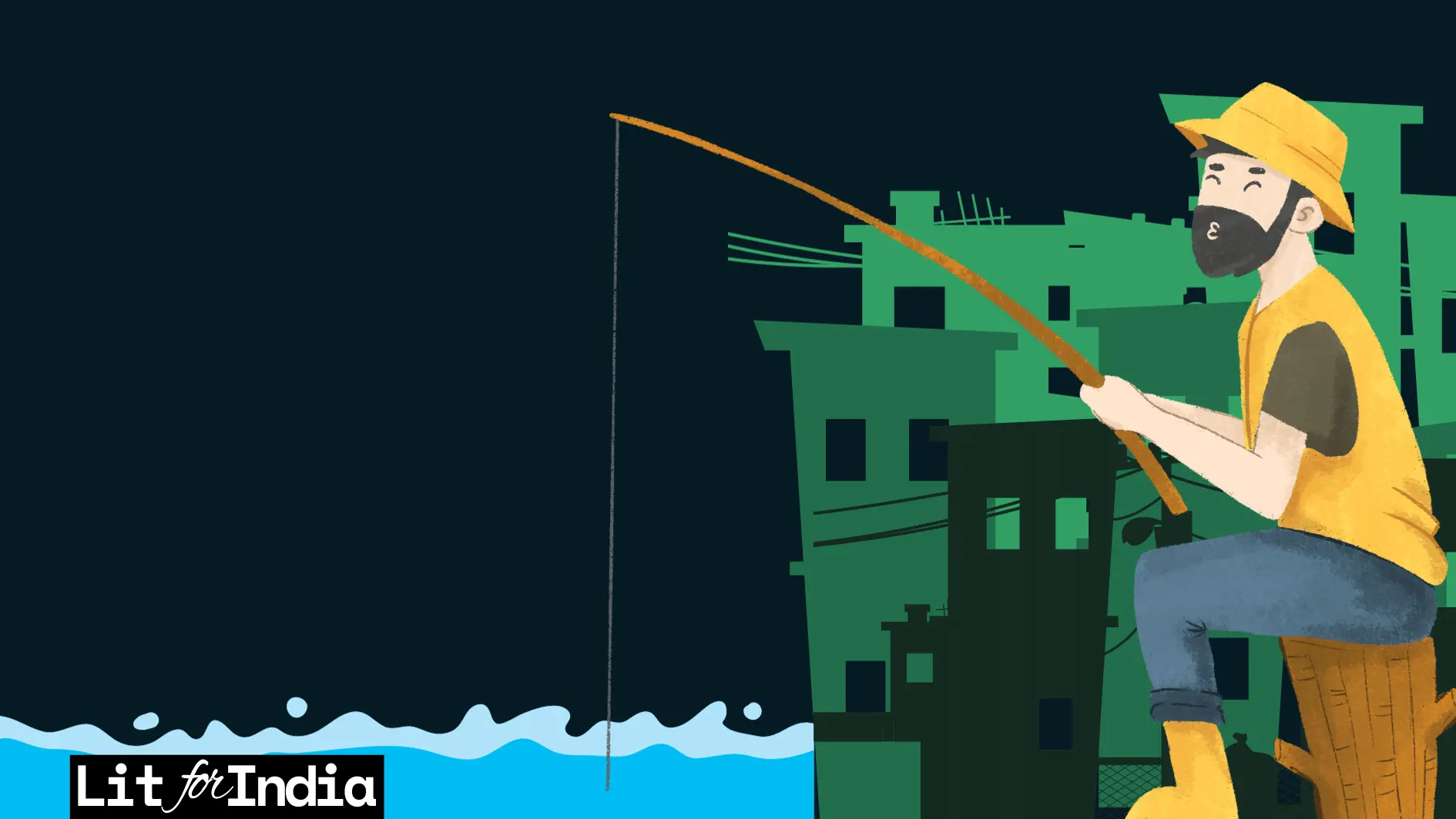Hunger by Jayanta Mahapatra is a stark and unsettling exploration of the devastating effects of poverty, particularly on the most vulnerable members of society. Through vivid imagery and raw emotional engagement, Mahapatra delves into the dehumanizing cycle of hunger and its impact on human relationships, dignity, and morality. In this blog post, we will provide a comprehensive summary and analysis of Mahapatra’s “Hunger.”

Table of Contents
Hunger by Jayanta Mahapatra
It was hard to believe the flesh was heavy on my back.
The fisherman said: Will you have her, carelessly,
trailing his nets and his nerves, as though his words
sanctified the purpose with which he faced himself.
I saw his white bone thrash his eyes.
I followed him across the sprawling sands,
my mind thumping in the flesh’s sling.
Hope lay perhaps in burning the house I lived in.
Silence gripped my sleeves; his body clawed at the froth
his old nets had only dragged up from the seas.
In the flickering dark his hut opened like a wound.
The wind was I, and the days and nights before.
Palm fronds scratched my skin. Inside the shack
an oil lamp splayed the hours bunched to those walls.
Over and over the sticky soot crossed the space of my mind.
I heard him say: My daughter, she’s just turned fifteen…
Feel her. I’ll be back soon, your bus leaves at nine.
The sky fell on me, and a father’s exhausted wile.
Long and lean, her years were cold as rubber.
She opened her wormy legs wide. I felt the hunger there,
the other one, the fish slithering, turning inside.
Summary
Hunger by Jayanta Mahapatra paints a stark picture of poverty and its consequences through the encounter between a man and a fisherman on a sun-scorched beach. Driven by hunger and desperation, the fisherman offers his teenage daughter in exchange for a small sum. The unnamed speaker initially repulsed, grapples with his own desires and the harsh reality of the fisherman’s situation. The poem’s powerful imagery, such as the “sun-blasted beach” and the daughter’s “sun-bleached bones” eyes, emphasizes the dehumanizing effects of poverty.

Analysis
A Gripping Narrative of Poverty and Exploitation
The poem centres around the unnamed speaker’s encounter with a fisherman and his teenage daughter. Driven by the pangs of hunger and desperation, the fisherman offers his daughter in exchange for a meagre sum. The speaker, initially shocked and repulsed, finds himself caught in a moral quagmire, torn between his own desires and the stark reality of the fisherman’s predicament.

Mahapatra’s masterful use of imagery paints a grim picture of their surroundings. The “sun-blasted beach” and the “sea’s hollow drumbeat” create a desolate atmosphere, mirroring the emptiness in the characters’ hearts. The daughter’s “eyes… dull and dry,” like “sun-bleached bones,” become piercing symbols of their shared dehumanization.
Beyond the Transaction: Examining the Psychological Depth
The poem transcends the surface of a mere transaction by delving into the psychological repercussions of poverty and exploitation. The fisherman, portrayed as a figure of stoic resignation, embodies the crushing weight of hopelessness that poverty inflicts. His casual offer of his daughter reflects a twisted sense of pragmatism, a desperate act of survival in a world devoid of basic needs.
On the other hand, the speaker’s internal struggle highlights the psychological toll of complicity. His initial revulsion gradually gives way to a sense of shame and self-loathing, revealing the corrosive effect of such encounters on the human spirit.
A Broader Commentary on Societal ills
“Hunger” transcends the individual experience to offer a scathing critique of societal structures that perpetuate poverty and exploitation. The poem forces us to confront the uncomfortable truth about the human cost of economic disparity and the commodification of women’s bodies in a world where basic needs remain unattainable for many.
Mahapatra’s powerful and evocative language leaves a lasting impression, urging readers to grapple with the complex realities of poverty and the desperate measures it can drive people to. “Hunger” serves as a call to action, demanding critical introspection and a commitment to addressing the systemic inequalities that fuel such devastating circumstances.
Structure and Form
- Free Verse: “Hunger” breaks free from traditional rhyme schemes and meter, mirroring the chaotic and unpredictable nature of poverty. This fluidity allows Mahapatra to shift seamlessly between internal thoughts and external observations, immersing the reader in the immediate moment.
- Short Lines and Stanzas: The poem’s brevity amplifies the sense of urgency and desperation. Each line, often stark and devoid of excess description, carries a poignant weight, forcing the reader to confront the raw reality presented.
Literary Devices
- Vivid Imagery: Mahapatra paints a desolate picture with sensory details like the “sun-blasted beach,” the “sea’s hollow drumbeat,” and the “sun-bleached bones” of the daughter’s eyes. These concrete images evoke a sense of emptiness and despair, mirroring the characters’ internal desolation.
- Metaphor: The “flesh heavy on my back” serves as a powerful metaphor for both physical hunger and the speaker’s burden of witnessing such immense suffering. The “drunken yellow flames” of the oil lamp suggest a flickering hope amidst the pervasive darkness.
- Symbolism: The daughter’s “shawl,” which the fisherman attempts to remove, becomes a symbol of her vulnerability and the potential violation of her innocence. The ocean, constantly present, evokes a sense of vastness and the vastness of the problem of poverty.
- Juxtaposition: The poem constantly contrasts the internal and external worlds, the speaker’s desires and the stark reality of the fisherman’s situation. This tension drives the poem forward, keeping the reader engaged and urging them to grapple with the ethical dilemmas presented.
- Diction: Mahapatra’s choice of words is deliberate and impactful. Words like “wasting,” “bartered,” and “empty” underscore the dehumanizing consequences of poverty. The repeated use of “flesh” emphasizes the visceral nature of hunger and its primal drive.
Conclusion
Hunger by Jayanta Mahapatra is a poetic exploration of the ceaseless desires that shape the human experience. Through its metaphorical richness and emotional depth, the collection transcends the boundaries of conventional poetry, offering readers a profound reflection on the nature of hunger in all its forms. Mahapatra’s verses serve as a timeless testament to the universality of human longing, inviting readers to confront their own hungers and embark on a journey of self-discovery.
FAQs
What is the main theme of the poem Hunger?
“Hunger” by Jayanta Mahapatra explores the dehumanizing effects of poverty and its impact on both the victim and the observer, challenging us to confront uncomfortable truths about social injustice and individual complicity.
What does Hunger by Jayanta Mahapatra symbolize?
In Mahapatra’s “Hunger,” the titular concept symbolizes not just physical hunger, but the desperation & dehumanization caused by poverty, the commodification of women’s bodies, and the moral erosion it drives.
What is the central idea of the Hunger poem?
The poem’s central idea revolves around the dehumanizing impact of poverty, exploring how desperation drives individuals to violate morals and highlighting the societal structures that perpetuate such suffering.
What does the word Hunger connote in the poem?
“Hunger” in Mahapatra’s poem goes beyond physical food: it encapsulates desperation, poverty’s moral erosion, and the commodification of human dignity.

